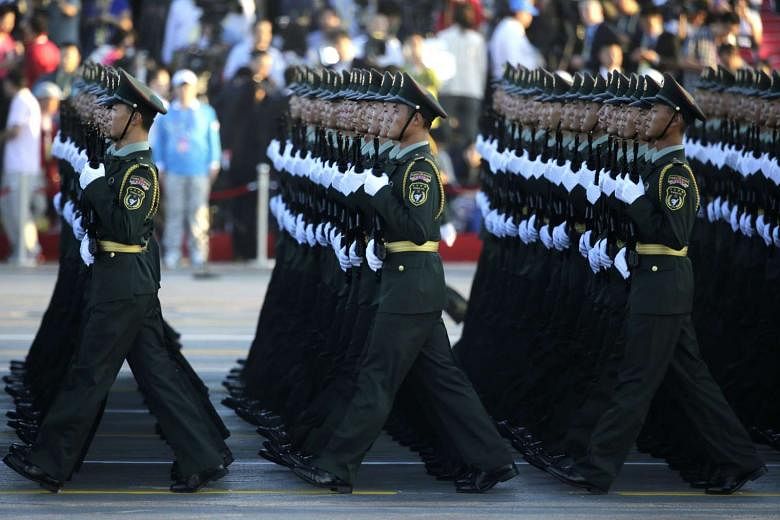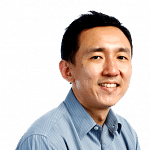BEIJING - China has pledged to cut 300,000 troops and reiterated its commitment to world peace, even as it staged a massive show of military might at a parade on Thursday commemorating the 70th anniversary of its World War II victory over Japan.
In his speech before the start of the parade, President Xi Jinping said China would cut the 2.3-million strong People's Liberation Army (PLA) - one of the world's biggest militaries - by 13 per cent, but he gave no timeline for the cut.
He also stressed that "no matter how much it develops, China will never seek hegemony or expansion and will never inflict its past suffering on any other nation".
Speaking on the Tiananmen Rostrum where Mao Zedong declared the formation of the People's Republic in 1949, Xi said "total victory" over Japan "restored China's status as a major country in the world".
Mr Xi - who took power in 2012 - recapped the suffering brought on China and the world, and thanked those who helped China during the conflict.
"Seventy years ago today, after a long and arduous 14-year struggle, the Chinese people achieved a great victory in the War of Resistance against Japan... peace and sunshine once again illuminated the earth," he said.
He said that the conflict was "a decisive battle between good and evil, light and darkness" and that victory "safeguarded 5,000 years of Chinese development and civilisation".
Despite Mr Xi's comments on China's commitment to world peace, the massive parade on Thursday is seen by many as an event to bolster the Communist Party's leadership, and display the growing prowess of the PLA.
Many major Western leaders of countries involved in WWII, such as US President Barack Obama, British Prime Minister David Cameron and French President Francois Hollande, declined to attend. Japanese Prime Minister Shinzo Abe also skipped the parade.
Thirty heads of state attended, including presidents of Russia, South Korea, Myanmar, Pakistan, Sudan, Venezuela and Czech Republic.
Singapore's representative is former deputy prime minister Wong Kan Seng, who like other dignitaries, was personally greeted by Mr Xi and his wife Peng Liyuan before the start of the event.
After a 70-gun salute, more than 12,000 soldiers - including 1,000 foreign troops - marched down the capital's Changan Avenue, which cuts through the capital's iconic Tiananmen Square. The parade also showcased about 200 aircraft in a flypast and 500 pieces of Chinese military hardware, including the much talked-about DF-21D intermediate-range anti-ship ballistic missiles, which the US sees as a threat to its aircraft carriers.
Former Chinese leaders who attended the parade included former president Jiang Zemin and his successor Hu Jintao. Mr Jiang's rare public appearance came amid rumours of infighting in the ruling Communist Party. State television showed Mr Jiang and Mr Xi talking as they stood at the Tiananmen Gate with other dignitaries. Mr Jiang stepped down as party chief in 2002 and state president in 2003 but remained head of the military for another year.
The event ended with the release of thousands of doves and balloon, to applause from the crowd.
The parade took place against the backdrop of a clear blue sky, a rare sight in the Chinese capital which is often cloaked in choking smog. Authorities had pulled out all stops to clean up the environment ahead of the event. Factory production and construction activities in Beijing and surrounding cities and provinces were suspended or limited from late August.
Much of central Beijing - a city of more than 21 million people - was shut down on Thursday, which was declared a public holiday.
Shops, restaurants and food markets were closed, with the start of school term delayed. Beijing's main airport - the world's second busiest - suspended operations for three hours.






